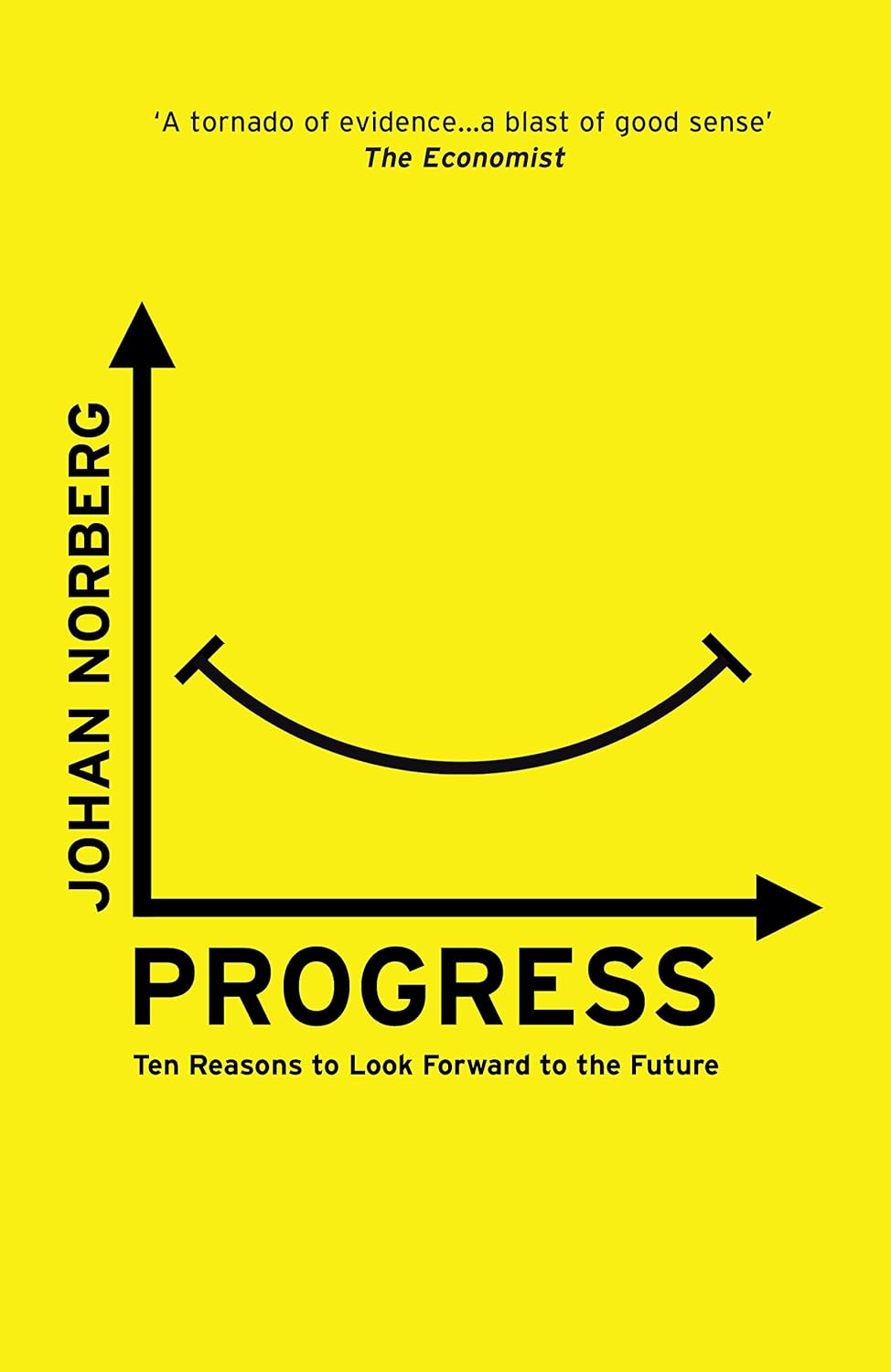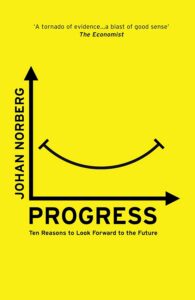Book Summary
In a world bombarded by negative headlines, Johan Norberg’s Progress: Ten Reasons to Look Forward to the Future delivers a data-driven antidote to pessimism. The book systematically dismantles the myth of global decline by presenting overwhelming evidence of improvement across ten key areas: food, sanitation, life expectancy, poverty, violence, environment, literacy, freedom, equality, and the next generation. Norberg combines historical analysis, global statistics, and personal anecdotes to show how humanity has made unprecedented strides in the last two centuries.
Far from being a pollyannaish take, Progress offers a nuanced perspective that acknowledges ongoing challenges while celebrating hard-won victories. The book’s greatest strength lies in its ability to reframe our understanding of current events through the lens of long-term trends. Readers will finish with a transformed worldview – one that recognizes today as the most prosperous, peaceful, and healthy period in human history despite media narratives suggesting otherwise.
Key Themes
Norberg’s central argument revolves around what he calls “humanity’s triumph” – the dramatic improvements in living standards that began with the Enlightenment and accelerated during the Industrial Revolution. He demonstrates how economic freedom, technological innovation, and global cooperation have combined to create what he terms “the golden age” of human civilization. Each chapter focuses on a specific area of progress, such as the 90% reduction in extreme poverty since 1820 or the doubling of global life expectancy since 1900.
The book also explores the psychology behind our collective pessimism, explaining how cognitive biases lead us to overestimate risks and underestimate progress. Norberg warns that this “progress paradox” threatens the very institutions that enabled these advancements, as fearful populations may support policies that restrict the freedoms responsible for their prosperity. This makes the book not just an analysis of progress, but a passionate defense of the open societies that created it.
What Makes It Unique
Unlike other optimistic works, Progress grounds its arguments in meticulously researched data rather than philosophical speculation. Norberg sources his claims from institutions like the World Bank, UN, and peer-reviewed studies, presenting complex information through accessible graphs and memorable analogies. The book stands out for its global perspective – celebrating improvements not just in Western nations but across developing countries where progress has been most dramatic in recent decades.
Another distinctive feature is Norberg’s emphasis on counterintuitive trends. He shows, for instance, how wealthier nations have cleaner environments than poorer ones, or how globalization reduced inequality between nations even as it increased inequality within some wealthy countries. These surprising reversals of conventional wisdom make the book particularly compelling for readers tired of simplistic doom-and-gloom narratives.
Reader Reactions
The book has garnered widespread praise from academics and general readers alike. Steven Pinker called it “an exhilarating book” that “will change your understanding about where we’ve come from,” while The Economist described it as “a blast of good sense.” Many reviewers note how the book transformed their worldview, with one reader commenting it “should be required reading for every journalist and politician.”
Some critics argue Norberg occasionally downplays persistent challenges like climate change or political instability. However, most agree these are minor quibbles with an otherwise rigorously researched work. The book’s ability to spark debate while shifting perspectives explains its enduring popularity since publication – it remains a go-to resource for those seeking factual antidotes to media sensationalism.
About the Author
Johan Norberg is a Swedish author, historian, and senior fellow at the Cato Institute specializing in globalization, entrepreneurship, and individual liberty. His international perspective stems from extensive travel and research across developing nations, which informs his optimistic yet evidence-based worldview. Norberg has written and hosted numerous documentaries on topics ranging from India’s economic rise to Adam Smith’s enduring legacy.
This background makes him uniquely qualified to write Progress. As someone who has witnessed firsthand how economic freedom transforms societies, Norberg brings both academic rigor and personal conviction to his arguments. His ability to communicate complex ideas accessibly – honed through regular columns in Sweden’s largest newspaper – explains the book’s broad appeal across political and educational spectrums.
Memorable Quotes
“Despite what we hear on the news and from many authorities, the great story of our era is that we are witnessing the greatest improvement in global living standards ever to take place.”
“We do not need an explanation for poverty, because that is the starting point for everybody. Poverty is what you have until you create wealth.”
“The dramatic reduction in violence ‘may be the most important thing that has ever happened in human history.'”

